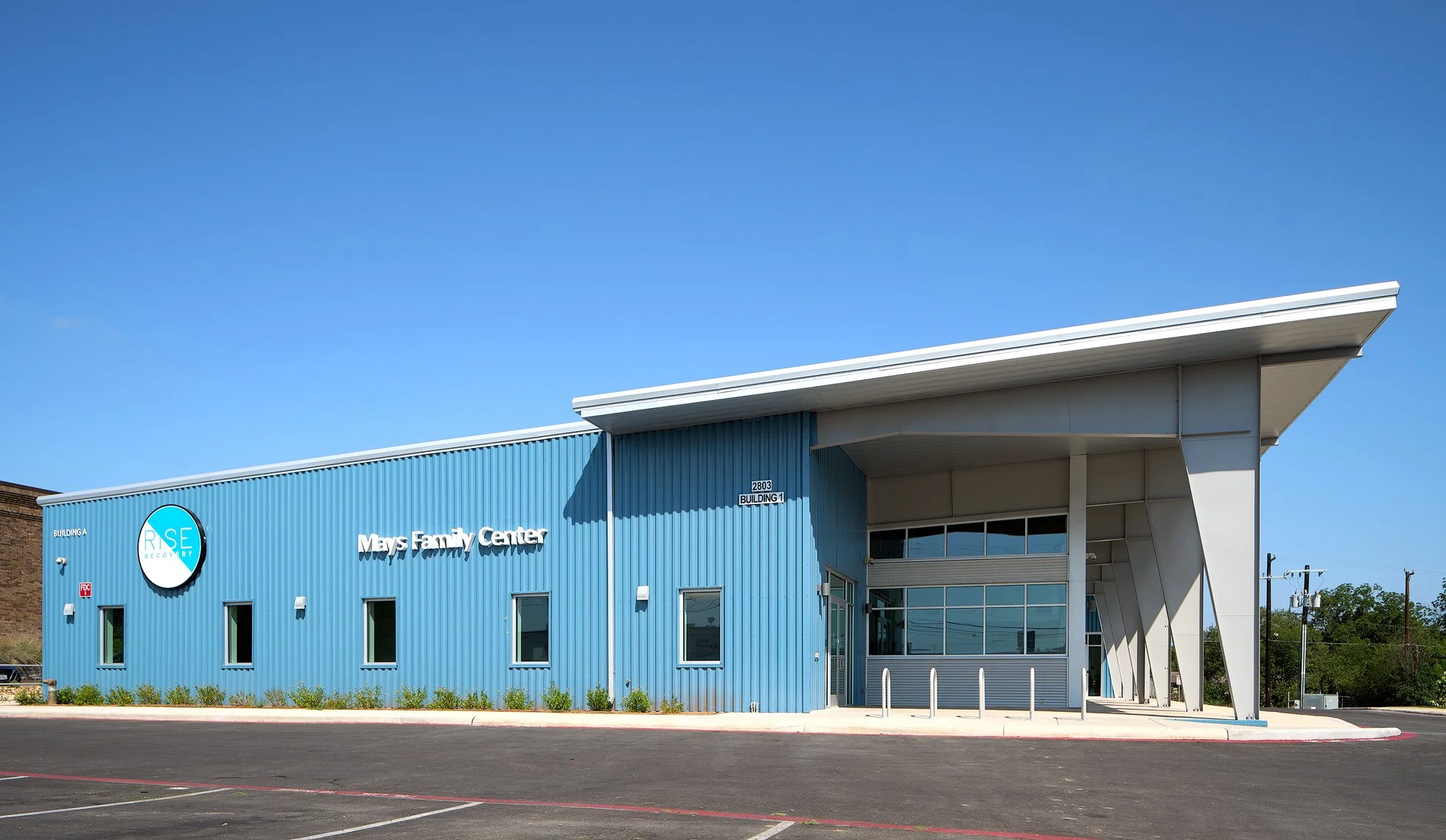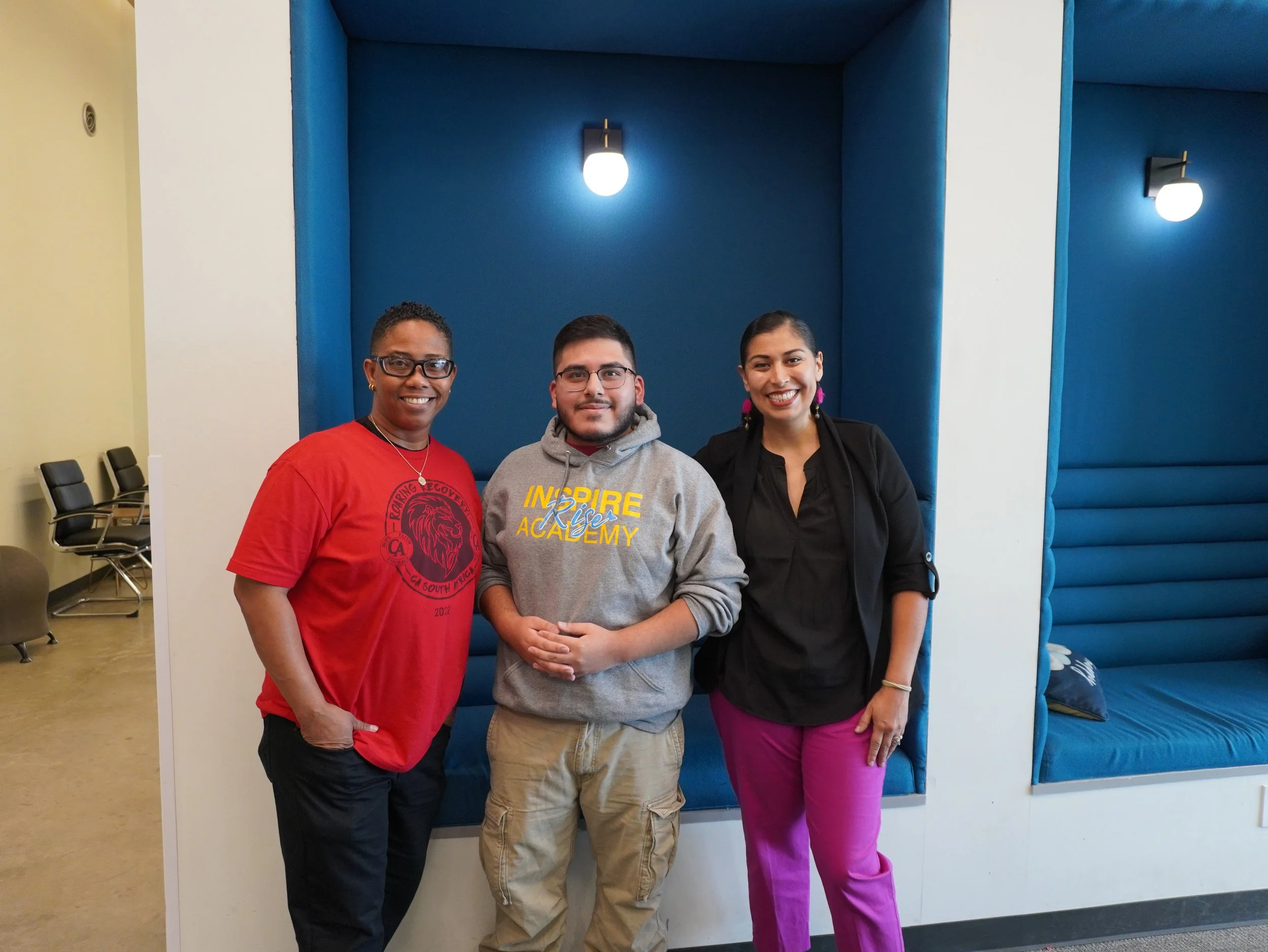Rise Inspire Academy: Elevating Our Youth Beyond Substance Abuse Disorders!
By Kaylin Ledford, Leslie Foley, and William Ziller
INTRODUCTION
As a woman in recovery, I know firsthand the challenges faced in addiction – specifically the lack of support and knowledge in appropriately addressing the condition and the difficulty in remaining sober and locating available resources. Imagine how much more challenging recovery is for kids in high school, with the immense amount of pressures and challenges facing them daily. The National Center for Education Statistics reports 22% of high school students have been offered, sold or given drugs on school property in the past year. Students face more pressures than ever, which can compound a substance use disorder. Navigating recovery as a high schooler is difficult, especially because most resources are geared toward adults. The Rise Inspire Academy helps fill that void by providing an excellent educational environment for area high school students who may be struggling with substance use disorders and recovery.
Substance use disorders do not discriminate, afflicting people of all demographics (i.e., age, race, sex/gender, and socioeconomic status). Substance use amongst adolescents is nothing new, but the stigma remains and is particularly deep when discussing minors. High schools centering recovery shift this stigma and provide essential support earlier in life, rather than later as problems naturally exacerbate with the stressors of adulthood (and can result in young individuals resorting to crime for survival). Society must work to dispel the stigma surrounding substance use disorders and embrace it as the disease it is, as one in ten people suffer from the affliction. We can start by normalizing the idea that kids may face this problem, and we need to facilitate spaces where they can grow and learn, instead of punishing them and setting them up for failure (and most likely, jail or worse).
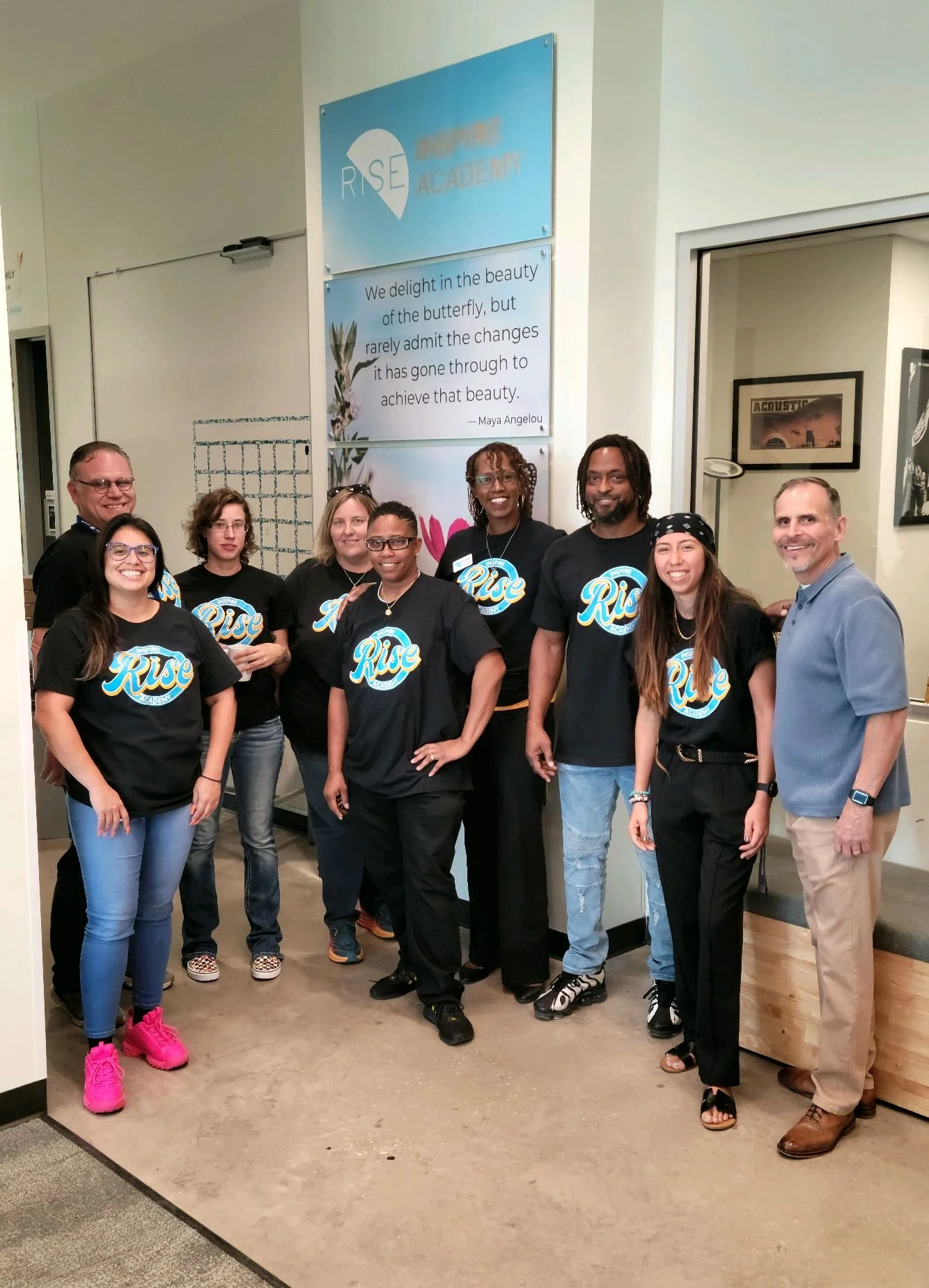
The Rise Inspire Academy - San Antonio’s First Recovery High School
Rise Inspire Academy (RIA), located at 2803 Mossrock, is the first and only recovery high school in San Antonio, offering excellent education provided by Braination, a charter network, providing behavioral health services and other material support for successful sobriety. RIA is adjacent to Rise Recovery.
Dr. Andrew J. Finch, a leader in recovery school research, tweeted last year that there are four reasons recovery high schools close: lack of transportation, the ever-present stigma toward substance-use disorders and recovery, a lack of awareness, and lack of funding. There are only a few dozen recovery high schools in the United States, and we are extremely lucky to have one in our city. Despite the odds of closure, RIA opened last year and successfully held a graduation in 2023. It shows promise for longevity through the support of sponsors, such as Valero Energy Corporation, United Way of San Antonio and Bexar County, The Upswing Fund, the Greehey Family Foundation, the Najim Family Foundation, and Kronkosky Charitable Foundation.
RIA’s mission is to combat the effects of teenage substance-use disorders in San Antonio. They provide a way of living that helps develop the coping skills necessary to live fuller healthy lives, free from stigma and exclusion.
To achieve this goal, the school has implemented many innovative learning strategies throughout its curriculum. A typical day begins between 8:15-9:15 AM. There are currently 32 students enrolled at RIA. The first (and most important) thing they do in the morning is to show up, being physically and mentally present to check in and relay anything they are possibly struggling with that day. This time allows teachers and students to gauge the emotional “temperature” of their colleagues and can inform the students and faculty as to how to best collaborate throughout the day. After this “check in”, normal school studies follow.
RIA teaches the same curriculum as Texas public schools, but coalesces its approach with recovery learning, healing tools, and counseling. Fundamental to this approach is the idea that students are not alone – they are surrounded by their peers who understand their struggles and can empathize with their teachers and counselors (because they are in recovery themselves). In this space designed to be sensitive to the issues teens in recovery face, students can be heard and learn to cope with feelings, all while preparing themselves for a bright future.
RIA’s curriculum is also unique in that lessons are centered around project-based learning. Project-based learning is a pedagogy differing from traditional learning, whereby the instructional approach is designed to give students the opportunity to develop knowledge and skills through engaging projects set around challenges and problems they may face in the real world.
A traditional geometry lesson would typically include a student learning angles and shapes through lessons with accompanying guiding worksheets and textbooks that focus on rote memorization of the material. After weeks of study, the student’s only opportunity to demonstrate their knowledge and mastery of the subject is the grade they receive on a final test.
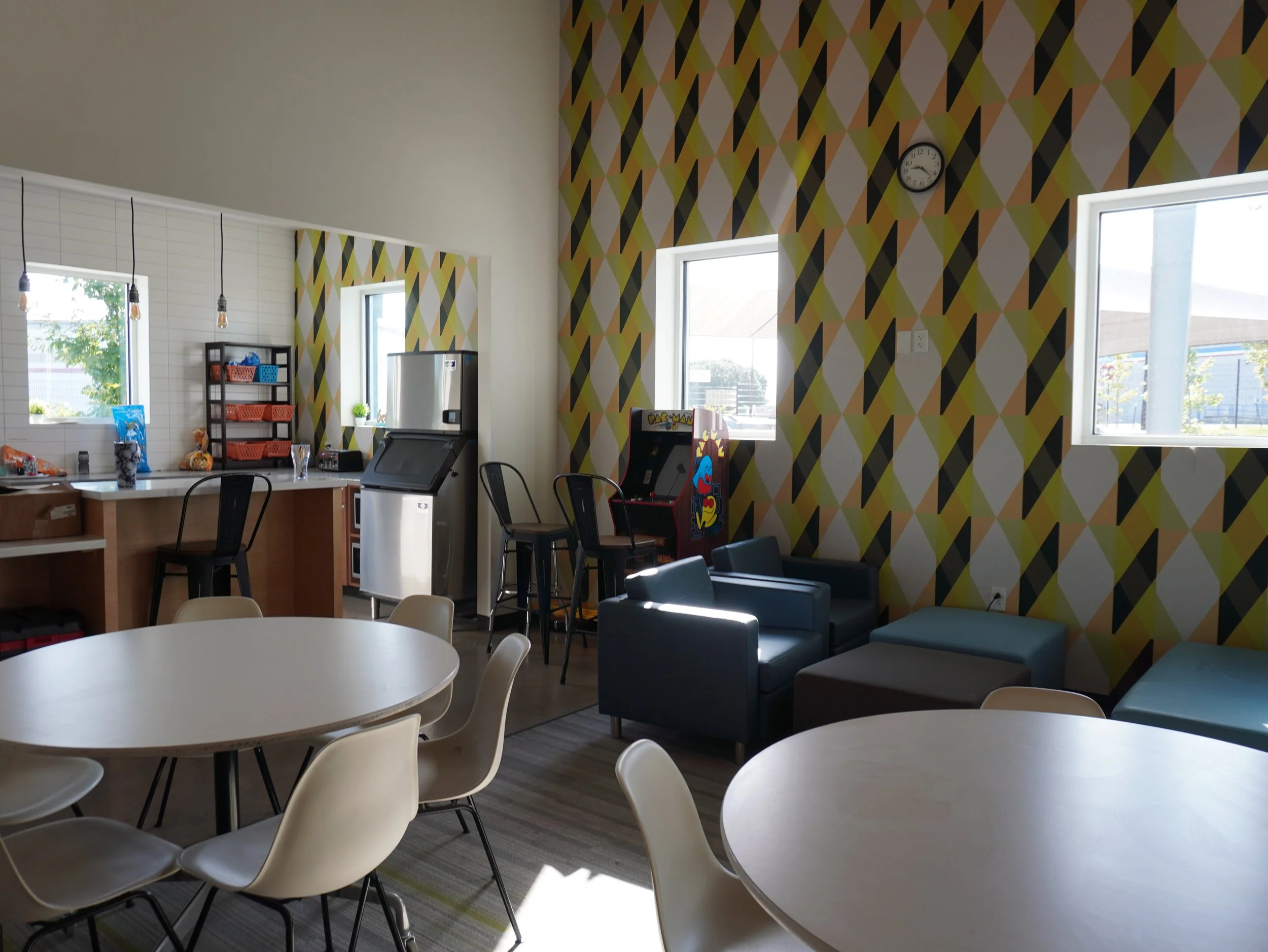
In a project-based learning model, these methodologies are still in play, but students demonstrate more than just memorization by applying themselves in a larger project that is structured to model the kinds of deeper questions and analytical answers professionals encounter. So, going back to the context of geometry class, the students would be tasked with designing a skatepark for example, and incorporating the knowledge from their lessons (and maybe some building into physics concepts as well) to aid in their design.
Project-based learning demands more collaborative efforts. Students will typically have to work in teams, ask specific questions related to issues they have encountered, and reflect on their contributions to the project.
For students dealing with recovery these values are integral in helping them find their place in society. Students who are feeling shame are asked to work with others and celebrate their individual contributions to the collective work, which helps to develop a new sense of identity among their peers. Students who may be feeling lost are given a sense of purpose and direction by being exposed to new careers and trajectories for their life.
RIA also strives to meet their students’ unique needs through a holistic and rehabilitation-focused approach to discipline. Discipline is administered based on the current emotional needs of the students, while considering the underlying struggles their students may be facing that manifests the behavioral issues the student is exhibiting. This stands in stark contrast to the “zero tolerance” punitive approaches common to traditional schools.
All of these factors are having a demonstrable impact. The school recently graduated their first senior class. Scene in SA sat down with RIA’s 2023 valedictorian Alec Gallegos for an interview about his experience at Rise Inspire Academy.
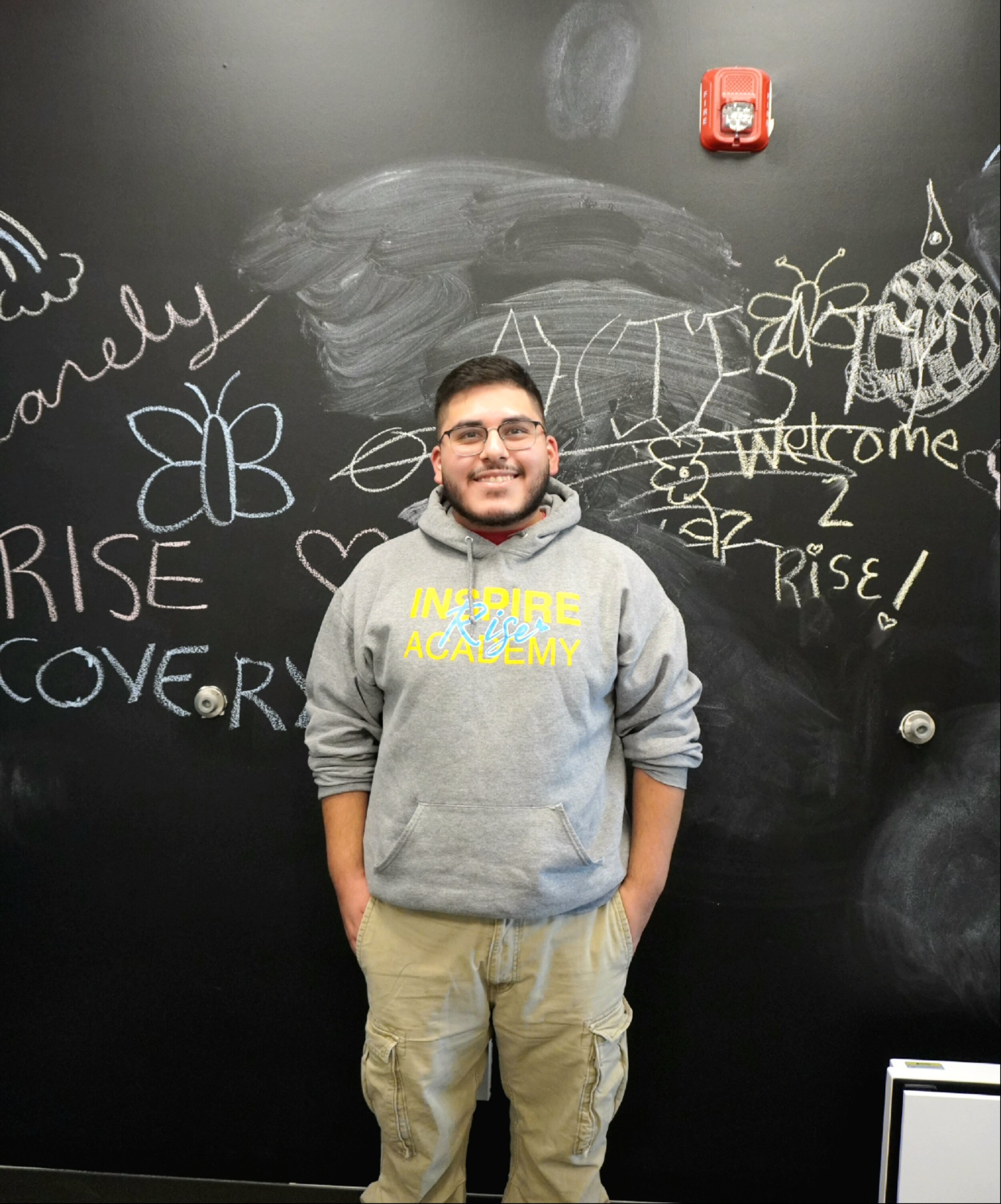
What are your fondest memories of Rise Inspire Academy?
“Most of my friends, people who care about me. I gained a lot of hope. I've gained a brighter path for my future. I feel better knowing that tomorrow is probably going to be a better day and I have everybody here to thank for that. They really care about me and I couldn't thank them enough for that. I really love this environment or the people that, you know, that really stick close to me and really want to see me grow. And, I hope to grow right next to them.”
Before you came here, what was your outlook on life?
“I didn't know what was going to happen, you know? I was pretty afraid. Before I was sober, I was really starting to struggle because everything stopped working. It became harder to cope with, and harder to do anything. I couldn't really get through the day; It became a chore. I didn't know where to turn or who to talk to. I mean, my family was there for me, but they can only do so much.
I almost resorted to suicide as an answer, but I asked for help. The day before, I had the money and I was planning on overdosing. Instead, I decided to call my parents, and I told them that I needed help, and they sent me to an institution to help me.”
Were you still struggling with your addiction when you got here?
“I was when I first got here. You know, it was pretty hard at first. I didn't know what I was going to do, but they were always there for me.”
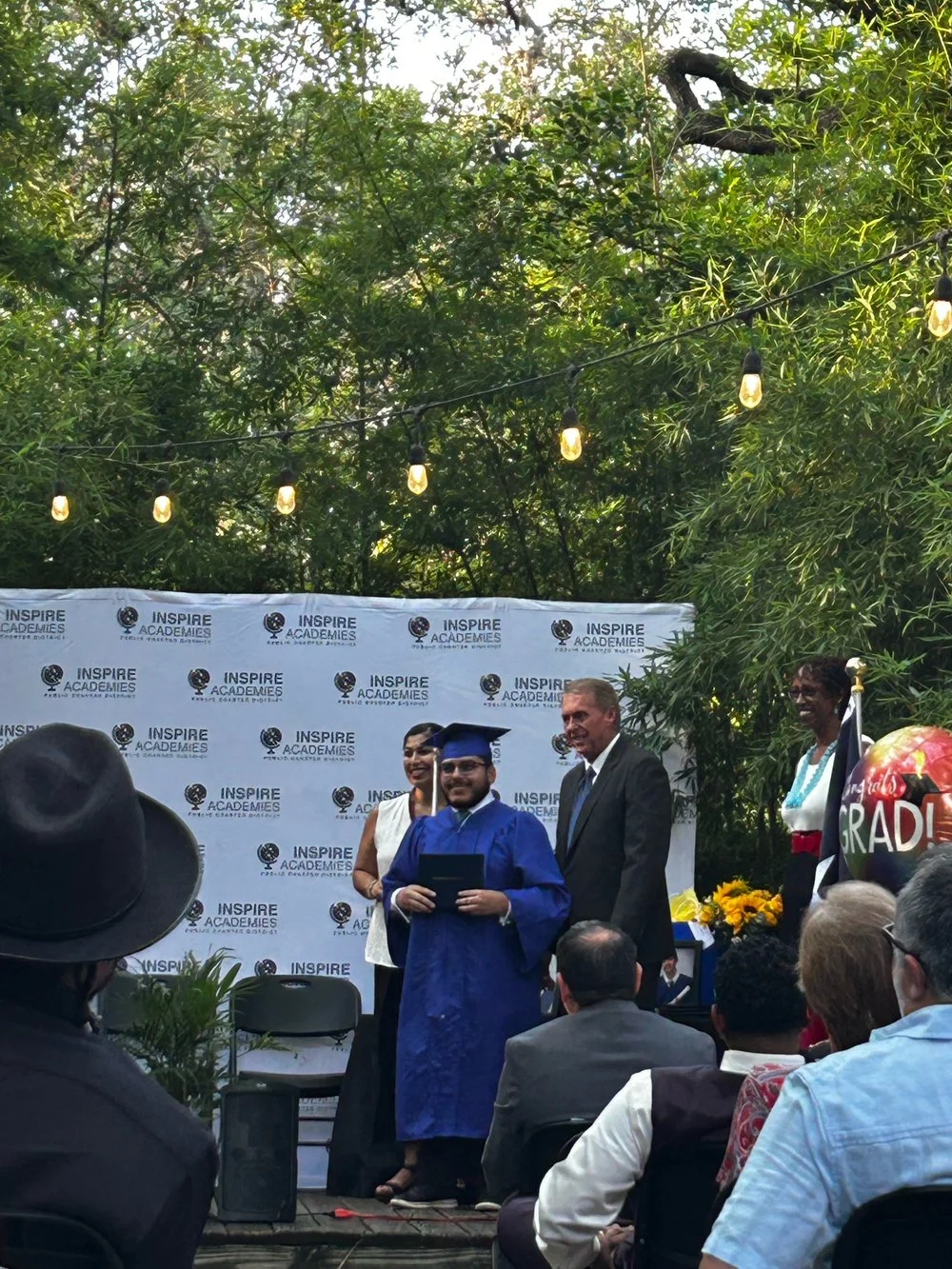
How did you find RIA?
“My sister found it. I dropped out of school, and at first, I wasn't doing anything. I started working. And then I stopped working. I quit. [My sister] wanted me to graduate from high school. My mom didn't know what she was going to do – she didn't know what to look for, so she was just gonna let me get my GED. My sister kept looking; she didn't give up on me. I really owe a lot to her for finding this place because it was a little small at first. She found Rise [Inspire Academy], she opened me up to it, and they set up an interview. I went and I just fell in love with it.”
Which strengths and tools did you learn here?
“I really made a closer connection with my higher power and people that are also in the community. The AA or CA community. Or NA. Anybody that's close to me with the same problem or the same issue. It's made it easier to cope. You can really open up. And it's really nice knowing that you're not alone. That's what makes it easier – knowing that I can always have somebody to call on the phone. They give [their] number or they take your number. And if you need anybody to talk to, you can always just open up the phone. If people are busy, you can always call somebody else.”
“I feel better knowing that tomorrow is probably going to be a better day and I have everybody here to thank for that.”
How was this place different from a public school?
“It's our own little community. It's our own small family. At first, you may think it gets harder to see the same people every day, you know? And sometimes it does, but we always learn to talk to and cope with each other. We're always there for each other and I made hundreds of friends that I know I'll keep for the rest of my life. My girlfriend.
At a regular school, you have a bunch of activities, there's thousands of people to talk to, and there’s always a fresh new face. But here, it's okay, you know; like, there're people that really care about you. At a regular school, the teachers are there, but they have so much on their plate. But people here, they take the time and they really talk to you, you know? They're really there for you. Right next to you, every step, [encouraging us].”
What would you say to a high school student that is struggling with substance use and is considering RIA?
“I would recommend it. If you're really struggling, [you can] open up to one of the peer coaches or peer counselors and they’ll help you out. Even if you don't want to come to the school, they always have meetings. The community’s always arms-open to new people. At a public school, you never know who's going to be there. But [at RIA], you know, you'll always have somebody there right next to you. It's a good school. They're always one-on-one with you. Sometimes you can graduate a little earlier.
I know a couple people that were struggling, but they stood right next to them. I was struggling, too. I'm gonna be honest: For the first semester, I didn't do anything. I was really slacking, but I knew that I really had to step up, so I did all my work, got 27 credits, and I ended up valedictorian.”
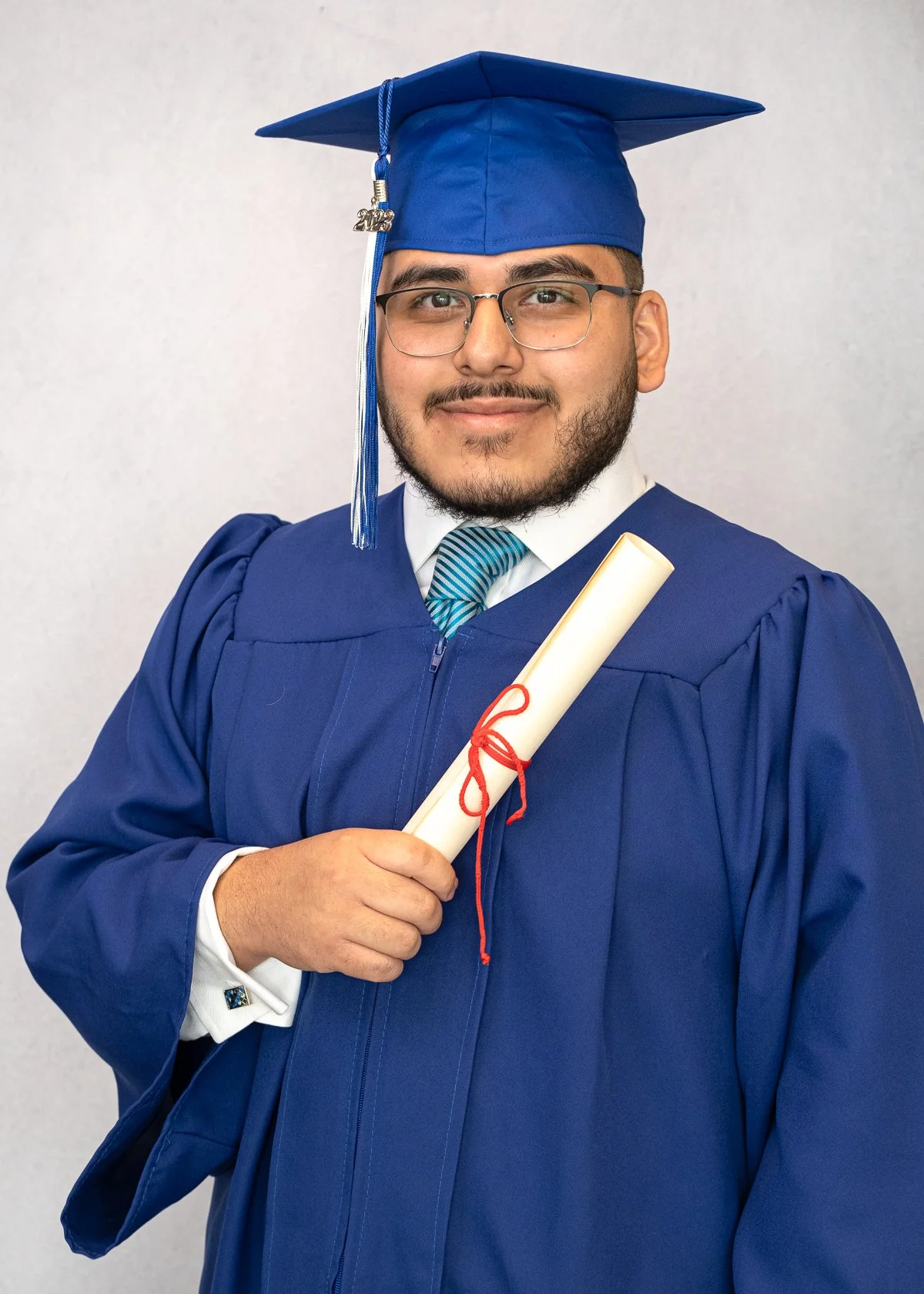
What are your plans for the future now after graduating as valedictorian?
“On the last day of school, we went to this seminar where they showed different, interesting jobs for young adults, young teens. I got introduced to cybersecurity. I took that for the first month [after I graduated from RIA] to get my certification for cybersecurity fundamentals. I'm also taking a community health worker course with Palo Alto College. On the side, I've been going to the gym. I've also recently started volunteering here [at RIA], with hopes of working here.” ■
This interview has been edited for conciseness and clarity.


